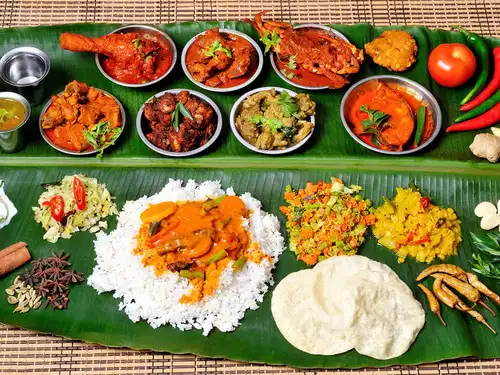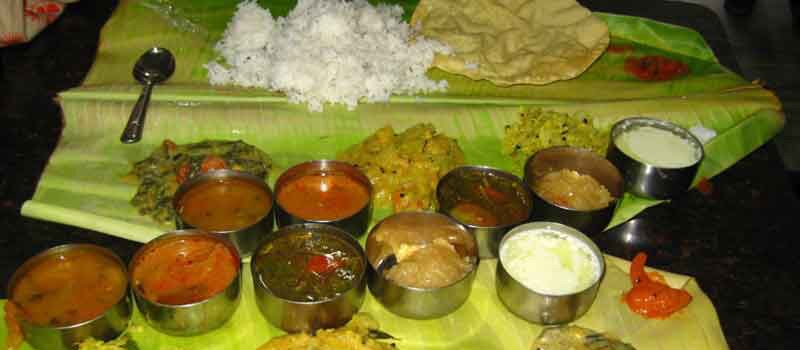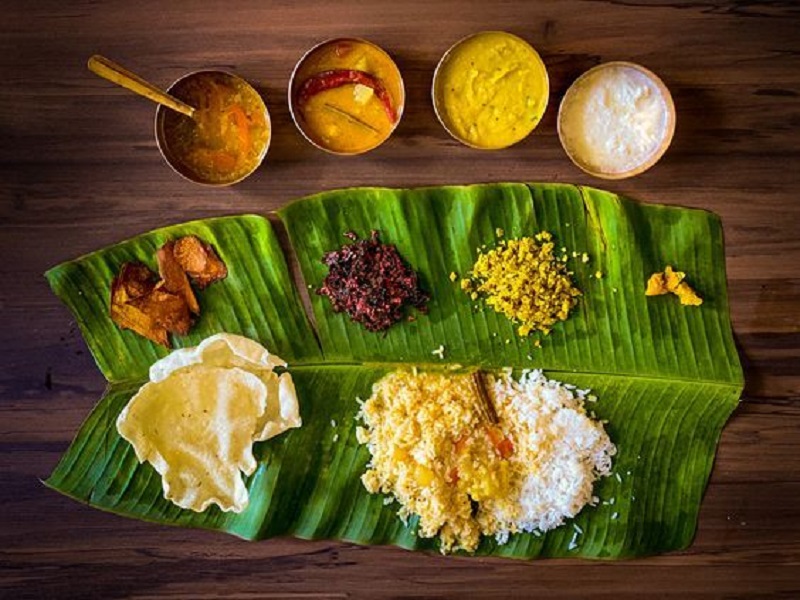Serving food on banana leaves is a timeless tradition rooted in practicality and health. The leaves add a unique flavor, are eco-friendly, and offer natural antibacterial properties. Discover the cultural significance and benefits of this sustainable dining practice cherished across many regions.
Banana leaves play a vital role in Indian tradition. Whatever functions or gathering it may be, food is served in the wide banana leaves. Especially people of South India use Banana leaves in a higher ratio than the north. There are surplus benefits in eating on the banana leaf.
From time immemorial people of South, use banana leaf to serve and pack food. As plantain tree is grown largely at south, people find it very comfortable and beneficial to use banana leaves. Coming to the banana tree, it is the only tree in the world which is edible and useful from tip to root. Every part of the tree is used for one or the other purpose.
Cultural Significance
In many cultures, serving food on banana leaves is considered auspicious and traditional. It symbolizes hospitality, respect for guests, and is often associated with festive occasions and religious rituals. For example, in South India, banana leaves are commonly used to serve meals during weddings, festivals like Pongal and Onam, and religious ceremonies. The large size of banana leaves allows for generous portions of food to be served together, symbolizing abundance and prosperity.
Practical Advantages
Banana leaves offer several practical advantages over conventional plates or utensils. First and foremost, they are abundantly available in tropical regions where banana trees thrive, making them an accessible and affordable choice. Their natural flexibility and water-resistant properties make them ideal for holding various types of foods without leakage or seepage, which is particularly beneficial for serving dishes with gravies or sauces.
Moreover, banana leaves are biodegradable and compostable, making them environmentally friendly compared to disposable plastic or paper plates. After use, they can be easily disposed of and decompose naturally, reducing waste and environmental impact.
Health Benefits
Beyond their cultural and practical appeal, banana leaves also offer health benefits. They contain polyphenols, antioxidants, and antimicrobial properties that can potentially leach into food when it comes into contact with the leaf’s surface. These properties may help in preserving food and inhibiting the growth of harmful bacteria, contributing to food safety, especially in tropical climates where microbial growth is more rapid.
Additionally, the practice of serving food on banana leaves encourages eating with hands, which is common in many cultures. Eating with hands is believed to enhance the sensory experience of food, improve digestion through better mixing of saliva and enzymes, and connect individuals more closely with their meal.
Sustainability and Eco-Friendliness

In today’s world, where environmental sustainability is a pressing concern, the use of banana leaves presents a compelling case. Unlike plastic or styrofoam plates, which contribute significantly to pollution and landfill waste, banana leaves are a renewable resource that biodegrades naturally without harming the environment. Their use aligns with principles of sustainable living and promotes a deeper connection to nature and traditional practices.
The leaves are used for serving food, flowers are edible and Tamilians make curry out it, fruits are very tasty, unripen fruits are also used for cooking, stem is a great remedy for kidney stones, the bark is used to tie flowers and make garlands, and the roots give birth to a sapling before they become fruitless.
This is the reason why every marriages in South India is adorned with a pair of plantain tree at the threshold of the function hall. Like this plantain tree everyone should lead their life usefully and be helpful to others till their last breath. Most of the houses in Tamilnadu and Kerala have banana trees in their backyard.
Interesting Facts

There are many rules and hidden meaning in placing the banana leaf. The proper position to lay the leaf is, the edge of the leaf should be to the left side of the consumer and the wide part should be to the right side (if it is a half leaf). In the case of full single leaf ( Thalai valai ilai), which is served to very important and respectable person in the family, the leaf should be laid in the way that the lines in the leaf goes from right to left.
There is a hidden meaning in way of folding the leaf after eating. If the consumer folds the leaf towards him, it means he is satisfied with the food and the respect he has received and he promises that he will attend more functions like this in future. But if he folds the other way (opposite to him) it denotes he is not satisfied with the hospitality he has received and he is not willing to come back again.
So mostly in happy functions like marriages, temple festivals, child naming ceremony and etc, people used to fold the leaves towards themselves, stating that they will come back to merry functions like this in future. In the case of death anniversary or other sorrowful gathering they will fold the leaves in the opposite way, denoting that they feel sad and don’t want to attend sad functions like this in future.
The tradition of serving food on banana leaves embodies a harmonious blend of cultural heritage, practicality, health benefits, and environmental sustainability. It reflects the ingenuity of utilizing natural resources in a way that is both functional and meaningful, resonating with communities across Asia and beyond. As we navigate modern challenges of waste reduction and sustainable living, the simple yet profound practice of using banana leaves serves as a timeless reminder of how traditional practices can offer innovative solutions to contemporary issues. Whether in festive celebrations or everyday meals, the humble banana leaf continues to play a significant role in enriching culinary experiences and preserving cultural heritage worldwide. #hydkhabar

